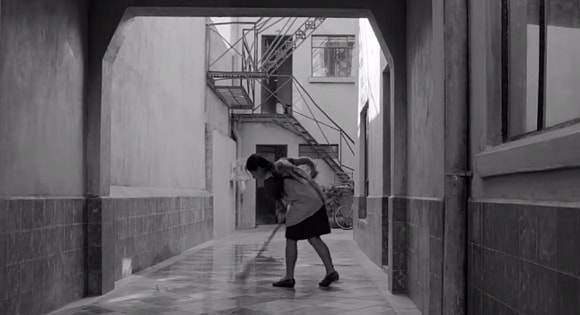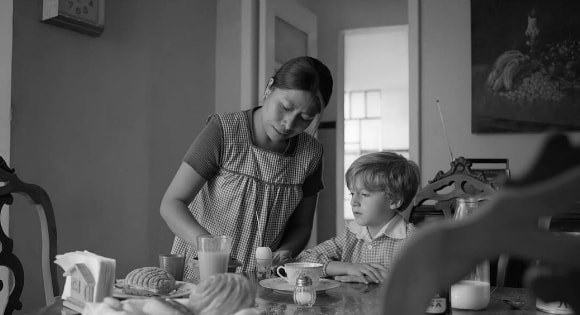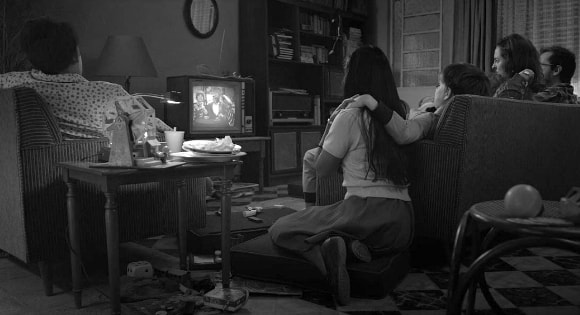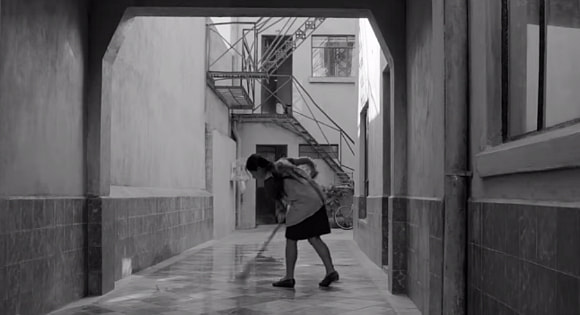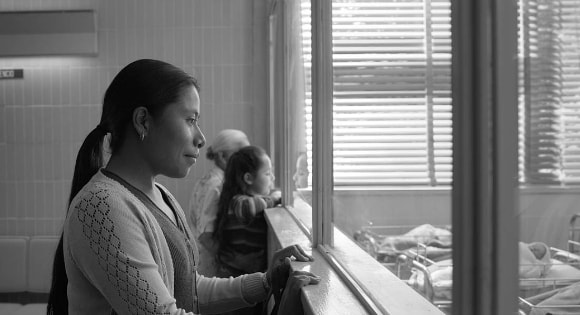Claiming your Inner Roma
thoughts after reading a review
Note to readers: Roma is a neighborhood in Mexico City
Cleo is the live-in maid, the lead character in the film, who lives in Roma.
Claiming your inner Roma really means claiming your inner Cleo.
Excerpts from the Review
"This bold and very special film centers around the life and work of Cleo (Yalitza Aparicio), a live-in maid employed by the middle-class family of Antonio (Fernando Grediaga), his wife Sofia (Marina de Tavira), and their four mischievous and loud children....Roma is Cuaron's cinematic valentine to his own family's longtime maid Libori Rodriguez, whom he consulted regularly during the time he spent writing this extraordinary domestic drama. We watch Cleo, who seems to be in constant motion, waking up the kids in the morning, preparing food, washing dishes, cleaning clothes, and tucking the children in at bedtime. She also joins the family watching TV and makes sure the family dog does not escape into the street from the driveway." (Frederic and Mary Ann Brussat) |
"The spiritual life, the Buddha said, is impossible without a generous heart. Kindness flows out of the ability to generate warmth and well-being in others. In our modern times, kindness is often viewed as one of those effete virtues lacking in charisma or clout. And yet, as we have witnessed in Roma, it encompasses meaningful acts of love, words of encouragement, and various kinds of empathy and reverence. No wonder Rabbi Abraham Joshua Heschel near the end of his life concluded: "When I was young, I used to admire intelligent people; as I grow older, I admire kind people." The same seems to be true for Alfonso Cuaron." (Frederic and Mary Ann Brussat) |
Thoughts after Reading the Review of Roma
Jay McDaniel
Will there be live-in maids in heaven? Or, for that matter, in ecological civilizations on earth? It’s hard to know. But I can’t help thinking that there will be women with the strength and kindness of Cleo, and that they will be close to the center of the living Unity in whose heart the universe unfolds. This living Unity is the universe itself, as gathered into a living Whole, with a life of its own, whom many address as “God,” Open and relational theologians like Thomas Oord tell us that this living Whole is "essentially kenotic." Essential kenosis is a fancy way of saying really, really kind – so kind that it’s not just a matter of choosing kindness, it’s who a person is in her very essence. I don't know if Cleo is esssentially kenotic. My guess is that she would dismiss the idea immediately. But in her very humility she is a window to the holy.
In their review Frederic and Mary Ann Brussat cite Abraham Joshua Heschel:
“Rabbi Abraham Joshua Heschel near the end of his life concluded: "When I was young, I used to admire intelligent people; as I grow older, I admire kind people."
Made in the image of Cleo
How true. In the big scheme of things, kind people are more admirable than intelligent people. And if God is Cleo-like, then it is the Cleo-like kindness of God that makes God worthy of our own admiration and emulation. And perhaps, who knows, we may well be made in the image of this kindness, deep down. It is possible that in Cleo we see something of ourselves – if not who we are then who we would like to become. We are made in the image of God's kindness, and we'd like to grow into a likeness of the image.
And truth be told we might like to live in societies that are Cleo-like, too. Process philosophers and theologians call them “ecological civilizations.” They have in mind societies that are creative, compassionate, participatory, inclusive, kind to animals, and good for the earth, with no one left behind. Societies in which people live with respect and care for the community of life, knowing that they are part of, not apart from, the larger web. These societies are, of course, an ideal – but they are a worthy ideal.
I do not know if there will be live-in maids in such societies, but I do know that such societies need to value kindness even more than intelligence. This is a radical reversal of the value system that permeates contemporary society. In contemporary society we value appearance, affluence, and marketable achievement, not kindness and a humble willingness to do household chores.
Counter-Cultural Wisdom
But the movie Roma suggests to us that there is a wisdom in the latter: a wisdom that far surpasses the values of contemporary society. Roma invites us to live from a different set of values in which success is found in kindness, not marketable achievement. Is this not a way for all of us? Was there not a young Jew, many years ago, who said something of the same when he noted that the humble widow was closer to heaven than the powerful elite? Didn’t he, too, reverse the norms for love’s sake? And might we do the same?
Like Cleo, like God, Jesus couldn't manipulate the world and make everything happy. But like Cleo, and like God, he tried to live consistently from a kindness that was deep in his heart and perhaps, in its way, close to God. Jesus had a bit of Cleo in him. And perhaps we do as well. This is the hope, not only for ourselves but for the planet. It's not enough to have green cities, we need warm hearts. We need to claim our inner Roma.
In their review Frederic and Mary Ann Brussat cite Abraham Joshua Heschel:
“Rabbi Abraham Joshua Heschel near the end of his life concluded: "When I was young, I used to admire intelligent people; as I grow older, I admire kind people."
Made in the image of Cleo
How true. In the big scheme of things, kind people are more admirable than intelligent people. And if God is Cleo-like, then it is the Cleo-like kindness of God that makes God worthy of our own admiration and emulation. And perhaps, who knows, we may well be made in the image of this kindness, deep down. It is possible that in Cleo we see something of ourselves – if not who we are then who we would like to become. We are made in the image of God's kindness, and we'd like to grow into a likeness of the image.
And truth be told we might like to live in societies that are Cleo-like, too. Process philosophers and theologians call them “ecological civilizations.” They have in mind societies that are creative, compassionate, participatory, inclusive, kind to animals, and good for the earth, with no one left behind. Societies in which people live with respect and care for the community of life, knowing that they are part of, not apart from, the larger web. These societies are, of course, an ideal – but they are a worthy ideal.
I do not know if there will be live-in maids in such societies, but I do know that such societies need to value kindness even more than intelligence. This is a radical reversal of the value system that permeates contemporary society. In contemporary society we value appearance, affluence, and marketable achievement, not kindness and a humble willingness to do household chores.
Counter-Cultural Wisdom
But the movie Roma suggests to us that there is a wisdom in the latter: a wisdom that far surpasses the values of contemporary society. Roma invites us to live from a different set of values in which success is found in kindness, not marketable achievement. Is this not a way for all of us? Was there not a young Jew, many years ago, who said something of the same when he noted that the humble widow was closer to heaven than the powerful elite? Didn’t he, too, reverse the norms for love’s sake? And might we do the same?
Like Cleo, like God, Jesus couldn't manipulate the world and make everything happy. But like Cleo, and like God, he tried to live consistently from a kindness that was deep in his heart and perhaps, in its way, close to God. Jesus had a bit of Cleo in him. And perhaps we do as well. This is the hope, not only for ourselves but for the planet. It's not enough to have green cities, we need warm hearts. We need to claim our inner Roma.
